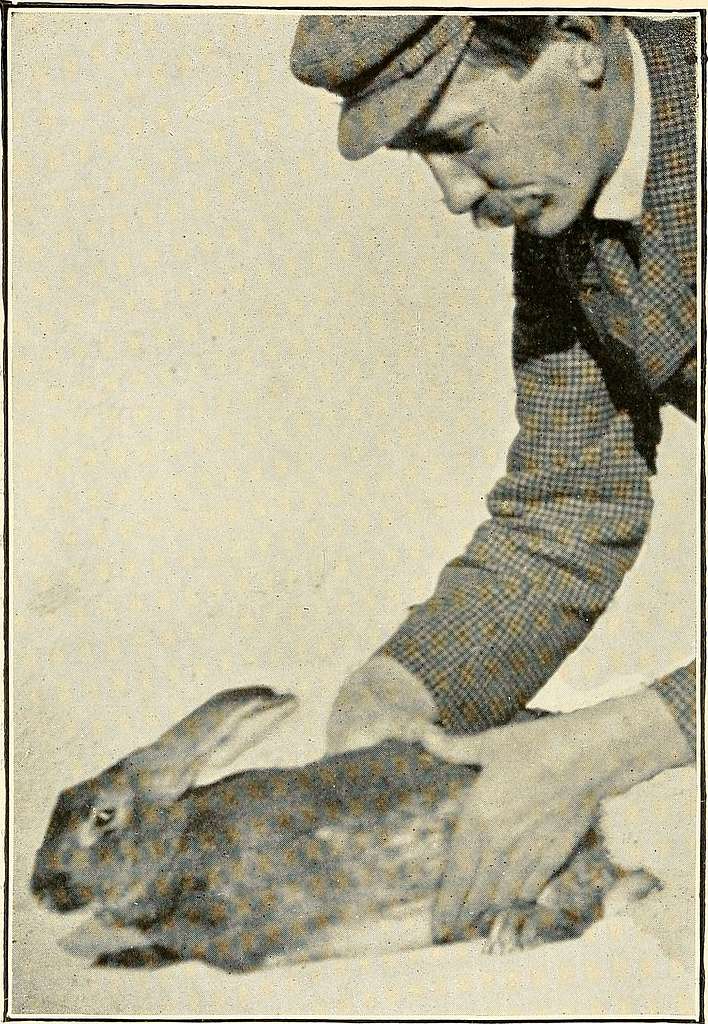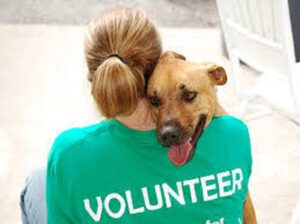Key Takeaways
-
Discover where to find and adopt a Belgian Hare rabbit, a breed known for its elegance and active nature.
-
Learn what makes Belgian Hares unique as pets and how to determine if they’re the right fit for your home.
-
Understand the rarity of Belgian Hares and how it affects their adoption process.
-
Get an overview of the costs involved in owning a Belgian Hare, including adoption fees and ongoing care expenses.
-
Find out whether Belgian Hares can interbreed with other rabbits and the implications of their unique biology.
Embarking on the Adoption Journey of a Belgian Hare
Adopting a pet is a rewarding experience that enriches lives. When it comes to adopting a Belgian Hare rabbit, you’re choosing a companion that is both rare and majestic. Belgian Hares are not your average cottontail; they’re a breed apart, with a lineage that commands respect and a personality that captivates. But before you embark on this journey, it’s essential to know where to look and what to expect.

“The first Belgian hare course of …” from picryl.com and used with no modifications.
Your Guide to Finding a Belgian Hare Rabbit
Belgian Hares are not as common as other rabbit breeds, so finding one to adopt might take a bit of detective work. Start by checking with local animal shelters and rabbit rescue organizations. These places often have a variety of rabbits looking for homes, and occasionally, a Belgian Hare might be among them. You can also reach out to breed-specific rescues that may have Belgian Hares or can point you in the right direction.
Another resource is the American Rabbit Breeders Association (ARBA), which can provide a list of reputable breeders. Attending rabbit shows and talking to breeders directly can also be an effective way to find a Belgian Hare. Breeders can give you a wealth of information about the care and temperament of these rabbits, which is invaluable for a prospective pet owner.
Remember, adopting a pet is a significant commitment, so it’s crucial to do your homework and ensure you’re getting a healthy, well-socialized rabbit from a source that has the animal’s best interests at heart.
Ensuring You’re Ready for a Belgian Hare
Before you bring home a Belgian Hare, it’s important to ask yourself if you’re ready for the responsibility. These rabbits have specific needs that differ from other breeds. They’re known for their active and energetic nature, requiring ample space to move around. Here’s a checklist to consider: For more detailed information, consider reading about Belgian Hare care.
-
Do you have enough space for a large enclosure or free-roaming area?
-
Can you provide a diet that includes high-quality hay, fresh vegetables, and pellets?
-
Are you prepared to spend time daily interacting with your rabbit for socialization?
-
Do you understand the grooming needs of a Belgian Hare, including nail trimming and coat care?
-
Have you identified a veterinarian experienced in rabbit care for regular check-ups and emergencies?
Answering ‘yes’ to these questions means you’re on the right track to becoming a Belgian Hare guardian.
Belgian Hares as Companions
Evaluating the Belgian Hare’s Pet Potential
Belgian Hares stand out with their long, lean bodies and an aristocratic demeanor. But do they make good pets? The answer is yes, for the right person. If you’re looking for a rabbit with personality, intelligence, and a touch of the wild, a Belgian Hare might be perfect for you. They’re interactive and can even be trained to do simple tricks or use a litter box.
However, they’re not the best choice for everyone. Their energetic nature means they need more exercise and mental stimulation than some other breeds. They’re also more sensitive to stress and require a calm, stable environment. It’s essential to consider your lifestyle and whether you can provide the kind of home a Belgian Hare will thrive in.
Understanding Their Unique Personality and Care Needs
Belgian Hares are not just any rabbit — they’re a breed with a rich history and distinctive needs. They require a diet rich in fiber to maintain their digestive health and a living space that allows them to express their natural behaviors like hopping, stretching, and exploring. They also have a longer lifespan than some other rabbit breeds, often living 7 to 11 years, so adopting one is a long-term commitment.
These rabbits form strong bonds with their owners and can be very affectionate. They’re best suited to a household that can provide a quiet, consistent routine and plenty of interaction. With the right care and environment, a Belgian Hare can become a cherished member of the family.
When considering adopting a Belgian Hare, it’s also important to think about their grooming needs. Their sleek, short coat doesn’t require much maintenance, but they do shed, and regular brushing can help keep their fur in good condition and reduce the amount of hair around your home.
Understanding these unique aspects of Belgian Hare care is crucial for anyone considering adopting one. It ensures that you’re not only ready to welcome one into your home but also equipped to provide the best possible life for your new furry friend.
Belgian Hares are a rare sight in the rabbit world, and this rarity is part of what makes them so special. They were once the most popular rabbit breed in America, but their numbers have dwindled over time. This decline is due to several factors, including the rise in popularity of other breeds and the misconception that Belgian Hares are wild animals and not suitable for domestic life.
Because they are less common, finding a Belgian Hare to adopt might take patience and perseverance. Their rarity often leads to higher demand among enthusiasts, which can make it a challenge to find one available for adoption. However, don’t let this discourage you. Those who are determined and patient often find that the wait is well worth it when they finally bring home their elegant new companion.
The Rarity of Belgian Hares
The Belgian Hare’s rarity is not just about numbers; it’s about the unique experience they offer as a pet. Unlike more common rabbit breeds, the Belgian Hare has a striking appearance that resembles a wild hare, with long, powerful legs and an athletic build. This distinctive look, combined with their intelligent and interactive nature, makes them a sought-after pet for rabbit enthusiasts.
What Makes Belgian Hares a Rare Find?
Several factors contribute to the rarity of Belgian Hares. Firstly, they require breeders who are knowledgeable about their specific needs and committed to maintaining the breed’s standards. Additionally, Belgian Hares have a more complex care regimen compared to other rabbit breeds, which can be a deterrent for some potential owners. Finally, they are not as widely bred, which means there are fewer Belgian Hares available at any given time.
Impact of Rarity on Belgian Hare Adoption
The rarity of Belgian Hares has a direct impact on their adoption process. Prospective owners often face long waiting lists and may need to travel significant distances to adopt one. Furthermore, because there are fewer Belgian Hares, there is less public knowledge about them, which can lead to misconceptions about their care and temperament. Education and awareness are key to ensuring that these rabbits are adopted into homes that are prepared to meet their needs.
The True Cost of Belgian Hare Ownership
When considering adopting a Belgian Hare, it’s important to understand the financial commitment involved. The cost of owning a Belgian Hare goes beyond the initial adoption fee. Prospective owners need to be prepared for the ongoing expenses of proper care, including housing, food, veterinary care, and other necessities.
Initial Adoption Fees and Where Your Money Goes
Adoption fees for Belgian Hares can vary depending on the source. Rescue organizations may charge a fee that covers spaying or neutering, vaccinations, and other medical care the rabbit has received. Breeders may charge more, reflecting the rabbit’s pedigree, show quality, and the care invested in raising the litter. Here’s a general idea of initial costs:
-
Adoption fee from a rescue: $20-$50
-
Purchase from a breeder: $50-$200
Keep in mind that these fees help support the organizations and individuals who dedicate their time to caring for these animals and ensuring they find good homes.
Ongoing Care Costs: A Breakdown and Budget Planning
After bringing your Belgian Hare home, you’ll need to budget for ongoing care costs. Here’s a rough breakdown:
-
High-quality rabbit food and hay: $20-$40 per month
-
Litter and bedding: $10-$30 per month
-
Regular veterinary check-ups: $50-$100 annually
-
Unexpected veterinary expenses: $100-$1,000+ for emergencies
-
Housing and enrichment toys: $50-$200 initially, then occasional replacements
It’s important to set aside funds for these expenses to ensure your Belgian Hare receives the care it deserves. A well-cared-for rabbit is a happy rabbit, and that means a better life for both of you.
When you consider the full scope of costs, remember that you’re investing in the well-being of a living creature that will depend on you for many years. This financial responsibility is part of the commitment you make when you decide to adopt a Belgian Hare.
The Biology Behind Hares and Rabbits: Can They Interbreed?
Understanding the biology of your pet is part of being a responsible owner. One question that often arises is whether Belgian Hares can interbreed with other rabbits. Despite their name, Belgian Hares are indeed domestic rabbits and not true hares. They have been bred to resemble the wild hare in appearance but are genetically very much rabbits.
Exploring the Genetics of Belgian Hares and Rabbits
Belgian Hares are a breed of rabbit, and as such, they can interbreed with other domestic rabbit breeds. However, breeding should be left to experienced individuals who understand the implications of genetics and can ensure the health and well-being of the animals involved. Breeding rabbits without this knowledge can lead to health problems and contribute to overpopulation.
It’s also worth noting that true hares, such as the wild hare species found in nature, cannot interbreed with domestic rabbits like the Belgian Hare. The two are different species with distinct genetic makeups, and nature has barriers in place to prevent interbreeding between them.
As an adopter, your focus should be on providing a loving home to your Belgian Hare, not on breeding. There are many rabbits in need of homes, and by adopting rather than breeding, you’re helping to reduce the number of animals in shelters.
Understanding the Breeding Practices and Their Implications
When it comes to breeding, it’s not just about whether Belgian Hares can interbreed with other rabbits, but also about the responsibility that comes with it. Breeding animals should not be taken lightly. It requires an understanding of genetics, a commitment to the health of the animals, and an awareness of the responsibilities of finding homes for the offspring. If you’re not experienced in rabbit breeding, it’s best to leave this to the professionals.
For those who do choose to breed rabbits, it’s essential to consider the welfare of the animals above all else. This includes providing proper veterinary care, ensuring that the rabbits have a suitable environment, and following ethical breeding practices. Breeding should always be done with the goal of improving the breed and not simply for profit or curiosity.
FAQs
Where Can I Adopt a Belgian Hare Rabbit?
Adopting a Belgian Hare rabbit can be a fulfilling experience, but it requires some research. Start by contacting local animal shelters, rabbit rescues, or breed-specific organizations. Websites like Petfinder or Adopt-a-Pet can also be useful resources to find rabbits in need of homes. Additionally, the American Rabbit Breeders Association (ARBA) can provide a list of reputable breeders who may have Belgian Hares available for adoption.
-
Local animal shelters and rescues
-
Rabbit-specific rescues and breed clubs
-
Online adoption platforms like Petfinder
-
Reputable breeders listed by ARBA (American Rabbit Breeders Association)
Be prepared to go through an adoption process that may include an application, interview, and possibly a home visit to ensure that you can provide a suitable environment for a Belgian Hare.
What Should I Consider Before Adopting a Belgian Hare?
Before adopting a Belgian Hare, consider the space you have available, as they require more room than the average rabbit. Assess your ability to provide a proper diet, regular exercise, and social interaction. Also, consider whether you have the time and resources for their grooming and health care needs, including veterinary check-ups and potential emergency care.
How Can I Tell If a Belgian Hare Will Be a Good Pet for Me?
To determine if a Belgian Hare will be a good fit for you, reflect on your lifestyle and environment. Belgian Hares are active and intelligent, requiring engagement and stimulation. If you have the time to interact with your pet daily and provide the necessary care, a Belgian Hare could be a wonderful addition to your home. It’s also helpful to meet a Belgian Hare in person to get a sense of their personality and how you connect with them.
Are Belgian Hares Suitable for Children?
Belgian Hares can be suitable for children, but it’s important to supervise interactions and teach children how to handle rabbits gently and respectfully. Due to their size and energetic nature, Belgian Hares may not be ideal for very young children who might not understand how to care for them properly. Older children who are interested in learning about responsible pet ownership can benefit greatly from having a Belgian Hare as a pet.
Can Belgian Hares Live with Other Pets?
Belgian Hares can live with other pets, but introductions should be done carefully and gradually. It’s important to consider the temperament of both the rabbit and the other pets. Some dogs or cats may have a strong prey drive and may not be safe around rabbits. Other household pets like guinea pigs or birds typically don’t pose a threat, but it’s always best to monitor any interactions. For more information on multi-species households, check out our guide to harmonious cohabitation in a multi-species household.
-
Introduce pets slowly and under controlled conditions
-
Ensure other pets do not have aggressive tendencies towards rabbits
-
Provide a safe, separate space for your Belgian Hare
-
Never leave a Belgian Hare unsupervised with other pets
With the right precautions, Belgian Hares can coexist peacefully with other family pets, enriching the lives of everyone involved.


